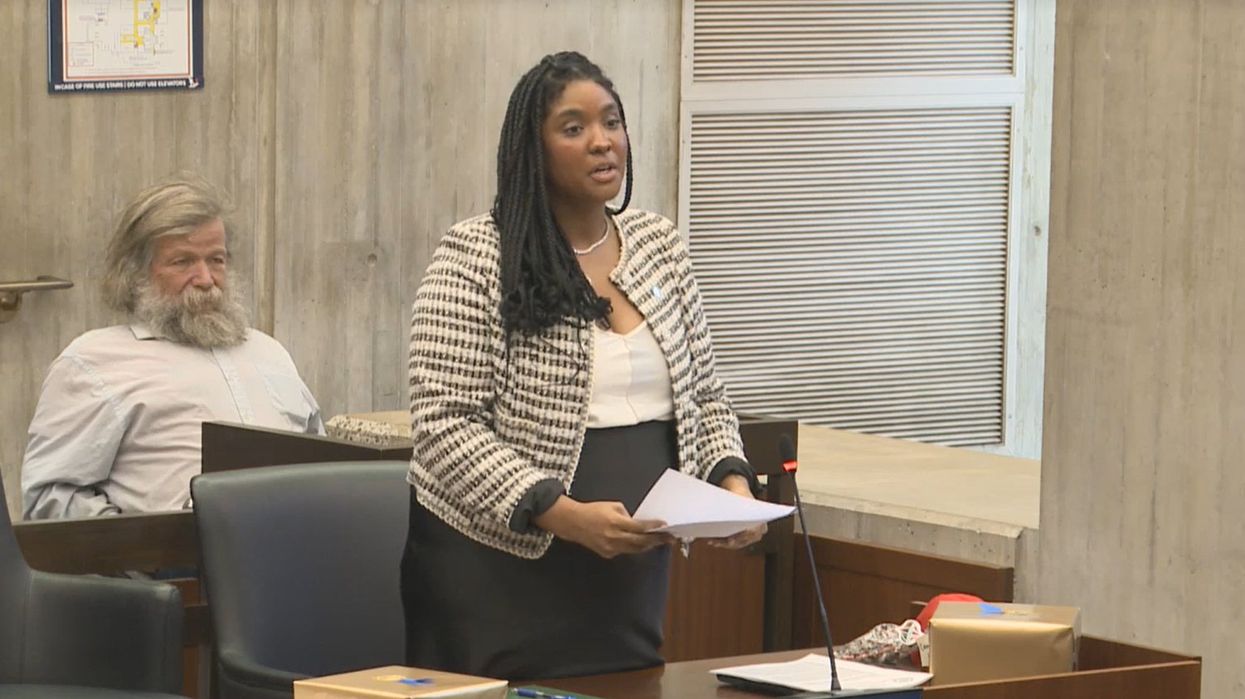
Kendra Lara, the councilwoman who introduced the measure. City of Boston.

Boston is poised to permit foreign nationals to meddle in American politics. The city council passed a measure last week that would allow non-U.S. citizens to vote in municipal elections.
Democrat Mayor Michelle Wu, fresh off backing a race-segregated Christmas party, will first have to sign off on the petition. With the mayor's mark of approval, which is far from guaranteed, the measure must then pass in the state legislature before it can take effect.
While some supporters are doubtful it will ultimately succeed, the state legislature — where Democrats dominate both chambers — is flush with enough leftists that it might stand a chance.
The measure was originally put forward by Kendra Lara, one of the councilors whose immutable characteristics qualified her for Wu's "Electeds of Color Holiday Party." Lara said at Wednesday's meeting, "Voting is an inherent right that this country was founded on."
Lara — the councilwoman who reportedly drove an unregistered car into a house in June while holding a revoked license — shared a sob story last week about how her non-citizen father was unable to cast a ballot for her when she ran for city council because he had not yet earned the right, reported the Boston Herald.
"His story is the story of thousands of legal residents in the city of Boston, who work, pay taxes, raise their children and participate in every way in strengthening the fabric of our city, yet cannot cast their ballot for the representatives who are making decisions about their daily lives," said Lara.
According to a 2022 Boston Planning and Development Agency report, there were at least 97,000 non-citizens living in Boston as of 2020. Fewer than half were estimated to have lawful permanent resident status. Lara's petition alleges that foreign nationals with "legal status" now make up 28% of the city population.
Councilor Julia Mejia, another participant in Wu's segregated party, stressed the importance of letting foreign nationals share in citizens' birthright, stating, "I want to make sure we are affirming all of us here in the city of Boston."
Councilor Gabriela Coletta voted in favor of the measure but expressed uncertainty about whether it would succeed on Beacon Hill.
"After checking with members of my community, to them a 'yes' vote would show solidarity with those who are here legally, pay taxes and are members of, not just East Boston, but Boston as a whole," said Coletta. "I do intend to vote 'yes' for them and for them only."
"The population in which we are trying to enfranchise deserves a tangible pathway," continued Coletta. "This docket is a starting point. However, due to the obstacles ahead, passage today serves simply as a symbolic gesture."
Michael Flaherty, a councilor who apparently was not supposed to receive an invite to the party, voted against the measure, noting concerns about the legality of letting non-citizens vote and unintended consequences.
"Those unintended consequences are that they may mistakenly register to vote and/or vote in federal or state elections, which would seriously jeopardize their opportunity to become a legal citizen," said Flaherty. "For me, that's just too great of a risk to take at this point."
While Lara's petition invokes New York City as one among a number of Democrat-run municipalities that have "restored municipal voting rights to non-citizens," Flaherty pointed out that the non-citizen voting law passed by the New York City Council in 2021 was struck down last year. The court underscored that "only U.S. citizens have the privilege of voting."
Flaherty was joined in opposing the bill by councilors Frank Baker, Ed Flynn, and Erin Murphy.
Councilor Ricardo Arroyo, another party guest, told councilors that the petition had undergone changes after city election officials noted that state law makes expressly clear that voting rights are contingent on citizenship, reported the Boston Globe.
The second word in the pertinent Massachusetts law discussing voter qualifications and the word on which all other qualifications hinges is "citizen."
Like Blaze News? Bypass the censors, sign up for our newsletters, and get stories like this direct to your inbox. Sign up here!